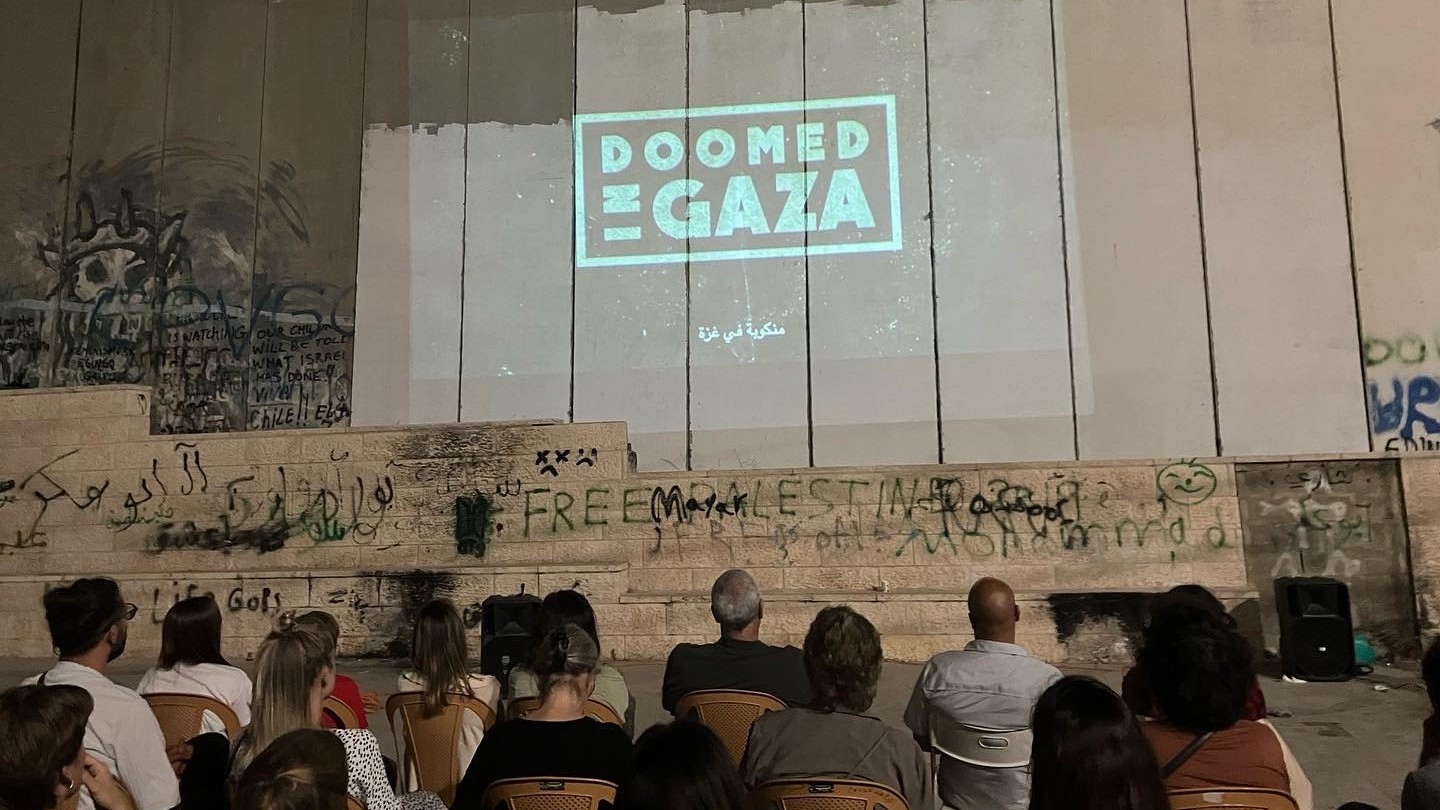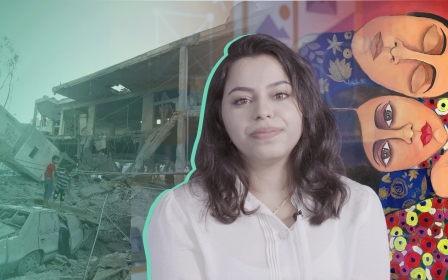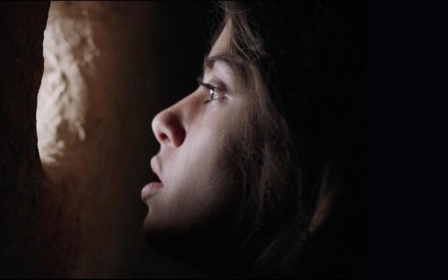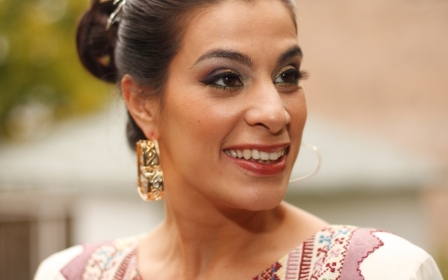Doomed in Gaza: The breast cancer lottery facing Palestinian women

For many women in Gaza, finding out that they have breast cancer is not the worst news. Realising that they won’t be able to get treatment or the medicine they need, because of Israel’s siege on the enclave, is far worse.
This is the focus of the documentary Doomed in Gaza, which was released in late 2022 and kicked off the Mediterranean Cinema Week festival, held during November in Jerusalem. The film was also screened in Gaza, Jericho, Ramallah, Hebron and Nablus.
The documentary, which was made by Spanish directors Beatriz Lecumberri and Ana Alba, sheds light on the isolation and misery many women suffering from breast cancer in Gaza face when they are unable to get the right treatment.
Israel’s suffocating siege on the Gaza Strip, which is now in its 15th year, often results in delays in treatment for patients, prevention from travelling outside of the Strip and difficulty sourcing medication.
According to the film, in Spain, the survival rate of women with breast cancer is 90 percent after five years after diagnosis, while for women in Gaza it stands at around 65 percent, while some NGOs put the figure at around 50 percent.
The land, sea, and air blockade was imposed after Hamas won legislative elections in 2006. It has devastated social and economic life in the coastal enclave, and severe restrictions on the movement of people and goods have left two million Palestinians living in an open-air prison.
Sharing their experiences
Despite Lecumberri not coming from a film background herself, she felt that the story needed to be told visually after meeting women who were diagnosed with breast cancer in Gaza, and were struggling to get medicine.
“When Ana and I met the women, we realised that this story is too compelling to be a radio report or newspaper article… we concluded that it would be preferable to produce a film,” she told Middle East Eye. “It’s vital to see the women’s faces and give them an opportunity to share their experiences,” she added.
The pair were both working as journalists in Jerusalem, and saw first-hand how often women were prevented from accessing treatment by Israel, due to alleged family ties to "Hamas members".
Lecumberri and Garcia decided to base the film’s main character on Neveen Habub, 42, who discovered she had breast cancer in 2012. After undergoing surgery, the cancer then went on to spread to her bones and brain. Due to the lack of chemotherapy in Gaza, she was in constant agony.
After being refused a permit and constantly having to wait to travel to Jerusalem in order to get treatment, Habub passed away.
‘A humanitarian tragedy’
For Lecumberri, conducting interviews for the documentary was difficult at first.
“Sick women initially felt they had nothing to say, but we met them multiple times and spent several days with them,” she said. “They gradually felt at ease and started to share their story,” she added.
During the screening of the documentary at the Cinema Week Festival, the audience were visibly moved, many of them shedding tears.
Some of the Palestinian audience watching the documentary learned for the first time the difficulties female cancer sufferers in Gaza experience. Others said that they were not surprised, considering how the Israeli occupation has impacted many aspects of life for Palestinians.
“This is the first time I’ve learned about this issue,” an audience member named Lamaa told Middle East Eye. “The unique aspect of this film is that it focuses on the humanitarian angle, the tragedy and the suffering of these women. It deeply moved my heart,” she added.
Haneen Odettalla, a Palestinian woman from Nazareth, said that she found the film interesting because she saw first-hand how the siege impacted women.
“The film intrigued me because of the political violence against women and the denial of their rights to receive medical care as normal human beings,” she said.
'The film intrigued me because of the political violence against women and the denial of their rights to receive medical care as normal human beings'
- Haneen Odettalla, viewer
Lecumberri said that the film was intended to educate and inform viewers on how people diagnosed with cancer are confined in a small area in Gaza, unable to leave it to get treatment.
“The target audience of the film is not necessarily Arab audiences,” she said, describing how many Europeans seeing the film could not fathom this happening in their home countries.
Despite the film being intended for a global audience, Lecumberri said she is glad that it was also able to educate Palestinians living in other parts of the country, from Jerusalem to Ramallah.
“Finally, they started to understand that Gaza is completely isolated… it was surprising to me that this film could also offer something for Palestinians,” she said.
Humanitarian cost of siege
For the film’s directors, one of the core aims was to focus on the humanitarian impact of the siege on Gaza and how women’s human rights are affected.
The film does not centre or make mention of any political parties, figures or authorities, and instead places its focus on ordinary people.
The film also touches on the story of Aisha Al Lulu, a five-year-old girl who had a brain tumour operation in Jerusalem, however her family and relatives could not get permits to accompany her. The young girl ended up dying without any family around her in May 2019.
In Gaza, many women are forced to wait for long periods of time to obtain a permit to be able to leave the Strip and get the necessary treatment.
According to a monthly report by the World Health Organisation in April, Israel approved only 57 percent of entry permits by patients from Gaza. International human rights groups and UN mechanisms have characterised the siege as unlawful, collective punishment.
By this point, a patient's condition could have deteriorated rapidly.
'I believe that the Israeli occupation assaulted my right, one of my simplest rights, to get treatment'
- Iman Alnajar, breast cancer patient
“I believe that the Israeli occupation assaulted my right, one of my simplest rights, to get treatment,” said Iman Alnajar, a cancer sufferer in the film.
Alnajar was diagnosed with breast cancer in 2017, but was not able to get an exit permit to allow her to get the radiotherapy she needs. Her sister, however, who was also diagnosed with breast cancer, was able to travel to Jerusalem to get treatment.
The film also delves into the stigma that many women in Gaza face when they are diagnosed with cancer, with several of them saying that they are treated as "abnormal".
Some women said they hid their diagnosis, because some people consider it shameful. According to some women, this is the reason many will not go for early medical checks, preventing them from discovering potential breast cancer early on.
Issues regarding changes in a woman's sexuality, feminity or fertility could also be looked down upon, resulting in them being treated differently. In some cases, like one mentioned in the film, this led to a 32-year-old woman's divorce.
Since its launch, the film has been met with praise and has been showcased at a number of festivals.
"We received prizes or were finalists in festivals in very unexpected places, such as Sweden, Canada, and Latin America. This indicates that people in these places recognised the film's important message and unique story,” says Lecumberri.
Middle East Eye propose une couverture et une analyse indépendantes et incomparables du Moyen-Orient, de l’Afrique du Nord et d’autres régions du monde. Pour en savoir plus sur la reprise de ce contenu et les frais qui s’appliquent, veuillez remplir ce formulaire [en anglais]. Pour en savoir plus sur MEE, cliquez ici [en anglais].




